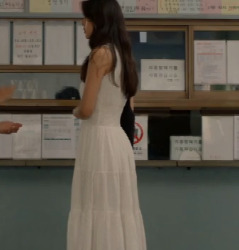#kidney di
Text
8 Self-Care Tips for Managing Chronic Kidney Disease
The phrase "self-care" may be familiar to you, but what does it mean and how is it applied? Taking the time to prioritize your physical and emotional well-being is the essence of self-care. While some people would prefer to talk to loved ones or visit a therapist, others might prefer to go on vacation or to a spa. These 8 self-care tips for chronic kidney disease. Read more

#chronic kidney disease self care#CKD care#Care for CKD#kidney di#daily health updates#blogging#health blog#share#health#healthblog#healthmatters#healthblogger
0 notes
Text
one of the weird things about life expectancies in warrior cats stretching out as the series goes on is that lionblaze is 8 years old with adult grandchildren and showing no signs of age or even retiring, while yellowfang was depicted as old af when she died at the age of 8.
#warrior cats#yellowfang#lionblaze#in fairness i imagine being invincible for years when he was younger and unable to obtain serious injuries or illness#probably gave him a lifespan boost. but everyone else around him is living forever; thornclaw is fine even though his siblings retired#and they're all old enough to attend secondary school. cats like squirrelflight and whitewing don't seem to have stiffer limbs or grey fur.#i don't think they should have the same lifespan as a typical unmanaged feral colony (only 2 years!) but i think first arc cats#should really have all died of old age a while ago. second arc cats should be retired and starting to pass from old age. and cats from the#third and fourth arcs beginning to feel their age and the older ones retiring.#so a lifespan of about 8-10 years i think? with the odd outlier like mistystar. leaders should probably live another year or two anyhow#because of their extra lives. although normal age related complications would likely start to eat into them once they live for long enough.#(i mean. squirrelstar just go her nine lives. she's probably going to live longer than a cat like tallstar who got them at a younger age#even if she lands up with kidney failure or cancer they haven't been whittled away when she was young via other stuff. i think her living#long enough to take the junior cert is reasonable)#also i think medicine cats would live a bit longer because they don't have to hunt and fight all the time. although older med cats would be#more vulnerable to being killed by a disease outbreak. i think their apprentice would have to take on tasks like herb gathering and treatin#contagious illnesses.
13 notes
·
View notes
Text
something people dont talk about is that losing a pet can be genuinely traumatic
#like ive been through some shit#there's stuff that i cry about if i try to talk about it#i havent told many people about this stuff like very few people#my parents and super close friends and thats pretty much it#but like. shit losing a cat is so fucking hard#mum suggested that MAYBE theres a SLIGHT possibility that dad's house has mould#and i started sobbing IMMEDIATELY because i used to live in a house with mould and that caused my first cat to have a kidney failure and she#died#and i currently have two cats#now my first cat was pretty old when we lived there#and she mightve had health issues when we got her#and she was like. an adult cat.#but my current cats?#one of them is like 3 and the other is 1. theyre basically kittens.#pablo im pretty sure IS a kitten#and if they were to die because our house has mould i would be so devestated#like i was already devestated about midnight but if that happened again i couldnt handle it#we didn't get another cat for like a year because dad just couldn't process the fact that she was gone#it's so scary losing a cat and i dont know what i would do if i found out that one of them got sick because of our house#i dunno it's just. really traumatizing sometimes.
13 notes
·
View notes
Text
just put my cat down and cried in front of a dozen of my coworkers. merry christmas
#cos i work at an animal hospital lol#my poor old girl was in kidney failure and she had been refusing to eat since tuesday :(#and she was so sad and lethargic today#i dont know if being there w her was better or worse than when my first cat died while i was out of town#that was worse… but this is also worse#i’mm so fucking sad :(((( she was so perfect and i did so mych for her and she still felt so sick :(#:(((( my sweet old lady kitty i’ll always love you
24 notes
·
View notes
Text
im taking full credits at school and working ~15 hours a week at my jobs and my cat is in the pet emergency room and my grandmother is in hospice Waiter can i please get a Break
#i thought either my grandma or my cat died bc my mom sent this text being like 'can you call me'...#turns out neither has. yet. but stay tuned for updates i guess#grandma has rapidly declining dementia#and cat has kidney disease and now something else#they should make human to cat kidney transplants possible NOW!!!!!! id give him my kidney
10 notes
·
View notes
Text
...
#hm. thinking about death and all that#bc the other day my mom texted me and my sisters to say shes added another cancer to her repertoire#shes had smooth muscle cancer for the past maybe 10 years but in the last year shes gotten a lot sicker#idk how long shes been stage 4 but shes got tumors in her liver. bladder. and maybe a kidney. and now shes also got like pre leukemia#she like deff got it from chemo treatment so now shes gotta try to go get a different treatment#but the type of mds she has is more likely to be treatment resistant and advance to acute myloid leukemia#so idk maybe itll go well. right now she still feels okay. but it just feels like the beginning of the end#so death has been on my mind the past few days#i feel mostly fine bc i think my medication is actually working. i just feel like im waiting for the other shoe to drop ya kno#and selfishly if she dies in the next 4 years itll b a real clusterfuck for my life#but i dunno her life has been super unfair and it sucks that she has to go thru all this#also when i was home last her hair looked insane bc she lost most of it but didnt shave what was left so she had new hair growing short#underneath and all i could think when i looked at her was: we r at the end of vanity. bc im a goblin#unrelated
11 notes
·
View notes
Text

#my mom died lmao#and my sister ran away a few days ago and is lying about our family being physically abusive so she can get emergency housing lmao#she ran away to her boyfriends family aha and this bf is racist and likes to say slurs#everything is awful and I wanna fucking die lmao#anyway will be returning soon 😗#Daisy will returned better then ever 😗😗😗😗😗#I miss my sister#aphmau#minecraft diaries#aphmau mcd#aphblr#aphverse#mcd rewrite#sincerely: the villager behind this account#I AM SO SORRY FOR POSTING THIS LMAO ILL DELETE SOON#also my kidneys are fuuuuuuuuuuucked
28 notes
·
View notes
Text

"Hello, yes, it's me, Jo Mori! Definitely!"
#jo stuff#verse:bleach(bigbang)#my art#the 'what if jo died and her 'zan made good on their deal'#kelel'ono is not evil she just doesn't know how to smile without looking like she wants to take your kidneys and sell them#[all art posts are open to rp on btw i always forget to say that lol]
10 notes
·
View notes
Text
The Shocking Redemption Arc of Chester Arthur
To my great pleasure, I get to tell you about Chester A. Arthur. If you don’t know his story, that’s a surprising statement, because most people don’t even recognize his name as one of the presidents. That’s a crying shame, because this guy has the most fascinating character arc of any president I’ve come across so far. He entered the presidency as a despicable, corrupt, conniving political lackey, and left it as--
Well, I’d best get on with the story.
Chester Arthur started out as an idealist. He was the son of an abolitionist Baptist minister, and though he dropped the religion in adulthood, he remained devoted to abolishing slavery. He became a lawyer with a New York firm that argued several civil rights case, and he rose to fame in 1854 when he served as the defense attorney for Elizabeth Jennings, the Northern version of Rosa Parks. Arthur’s victory in her case led to the desegregation of New York City’s public transportation.
During the Civil War, Arthur got an appointment as New York’s quartermaster general. After the war, Arthur returned to civilian life and became a Republican “party man” who worked behind the scenes to draw in voters, funding, and supporters. He and his wife Ellen (called Nell) both loved the finer things in life, which drove Arthur to do whatever he could to gain fame, wealth, and social status.
This is where I need to explain the spoils system. For the first hundred-plus years of American politics, all federal positions were filled by appointment. When a new president came into office, he could award government positions to his supporters--"to the victor go the spoils". Federal employees were required to donate money to the ruling party. There were no requirements for education or relevant experience. Any job could be filled by anyone with the right connections. If you think that sounds like a breeding ground for corruption and cronyism, you’d be absolutely right. By the 1870s, the system was getting extremely corrupt, and there was a growing push for reform.
But not by Chester Arthur. He owed his career to the spoils system. Through his work in the party, he became the right-hand man of Roscoe Conkling, New York’s senior senator and the state’s “political boss”. Conkling was a flamboyant showman, a magnetic politician, and a ruthless man. He had been a major supporter of Ulysses S. Grant’s presidential campaign, so Grant gave Conkling control over all the federal appointments in New York. Conkling used his power to fill positions with his friends and supporters, and he was brutal in attacking anyone who got in his way.
Because Chester Arthur was Conkling’s most loyal supporter, he got the best federal job in the country—Controller of the Port of New York. Before income tax, around 60-70% of federal funds came from the tariffs at this one port. The controller got a salary similar to the president’s, plus he was able to take a percentage of all the fines they levied. At the height of his power, Chester Arthur made $50,000 a year, which is a lot when the average skilled worker at the time made $500. (A rough estimate puts his salary at $1.3 million in today’s dollars.)
Arthur was living the high life. He racked up huge tailor bills. He had a gorgeously furnished house. His job allowed him to force his employees to donate a percentage of their salary to the Republican Party, which gave him even more power within the political machine. He bought huge amounts of wine and cigars that he handed out to people he was wining and dining for the good of the party. His wife resented that he was rarely home because of his political work, but Arthur loved the machine too much to stop.
After his 1876 election, President Rutherford B. Hayes desperately tried to reform the spoils system, but was blocked every step of the way by Roscoe Conkling. Finally, in 1878, Hayes managed to remove Arthur from his position as port controller, under suspicion of corruption, which allowed Arthur to spend more time working for New York’s political machine.
In January of 1880, Arthur was in Albany working for a political campaign when his wife caught pneumonia. By the time Arthur got home, Nell had fallen into a coma, and he wasn’t able to speak with her before she died. He felt guilty over her death, and especially the lack of closure caused by his devotion to politics. But instead of changing his ways, Arthur moved in with Conkling and became more devoted to politics than ever.
Which brings us to the 1880 Republican Convention. The Republican Party was split between two warring factions—the Stalwarts like Conkling who wanted to keep things the way they were, and the Half-Breeds who wanted civil service reform. President Hayes refused to seek re-election (partly because Conkling had made his life miserable) so these two factions somehow had to agree on a new candidate. Conkling supported a third term for Ulysses S. Grant. The Half-Breeds supported James G. Blaine of Maine—who happened to be Conkling’s mortal enemy.
James Garfield was there to nominate John Sherman—the Secretary of the Treasury and the younger brother of the famous Civil War general—and I can’t go any further in this story before I tell you a little bit about him. James Garfield is one of the most ridiculous overachievers in the realm of American politics. He was born into a dirt-poor farming family (he’s the last president ever to have been born in a log cabin). At sixteen, he left home to work on a canal boat, but quit after he nearly drowned, and his mother and brother scraped up enough money for him to go to school. His first year, he paid for his tuition by working as a school janitor. His second year, the school hired him to teach six classes (while he was still a student!) and then added two more because of how popular he was. By the time he was twenty-six, he was president of that same school. He became a lawyer and was elected to Ohio’s state legislature. During the Civil War, he became the youngest person to earn the rank of general. While fighting in the Civil War, his friends put his name in as a candidate for the US House of Representatives, and Garfield won even though he refused to campaign. He then served several terms in the House, where he became popular, but he refused to seek the presidency, because he’d watched several friends become warped by their presidential ambitions.
At the 1880 Republican Convention, Garfield was the more popular Ohio candidate, but insisted he was there only to nominate Sherman. At one point in his nominating speech, Garfield asked the audience, “Now, gentleman, what do we want?” To Garfield’s horror, one man shouted, “We want Garfield!”
Garfield remained loyal in nominating Sherman, but the spark had been lit. The voting went round after round after round for two days, with the votes being split between Grant, Blaine, and Sherman, with no one getting enough to win the nomination. Garfield got one vote in the third round. In the thirty-fourth round, Garfield suddenly got seventeen votes. Garfield stood to protest, saying no one had a right to vote for him since he hadn't consented, but the president of the convention--who was secretly thrilled because he liked Garfield more than any of the other candidates--told Garfield to sit down.
By the thirty-sixth vote, Garfield had won the nomination.
Now they had to choose a vice president. Several of the delegates got the idea to throw a bone to Roscoe Conkling. He was furious that Grant had lost the nomination, and he was vindictive. Conkling controlled New York’s political machine, so without him, the Republicans would lose New York, and without New York, they’d lose the election. He had to be placated. So the delegates nominated Chester Arthur, his right-hand man, as vice president.
Conkling told Arthur to refuse the nomination, but Arthur accepted, saying it was a greater honor than he had ever hoped to achieve. That's putting it mildly. The only position he’d ever held was port controller, and he’d been removed from that. Plenty of people thought nominating him was a horrible idea—a man like Chester Arthur only one step away from the presidency? But other people thought it was a shrewd political move—it would placate Conkling’s faction of the party, and Garfield was young and healthy and would rule in a time of peace. It wasn’t like there was any chance he’d die in office.
After Garfield was elected, Arthur immediately started causing problems. He all but openly boasted of buying votes in the election—which was not a great look when it had been a close race. He was completely on Conkling’s side in his war against Garfield. After Garfield appointed Levi Morton, a Stalwart, as Secretary of the Navy, Conkling sent Arthur and another lackey to drag Morton out of his sickbed--forcing him to drink a bracing mixture of quinine and brandy--and bring him to Conkling’s house to get chewed out, which caused Morton to resign. Conkling forced another Stalwart Cabinet nominee to resign on inauguration day.
Then Conkling went to war over the federal appointments. At first, Garfield placated him, appointing several of Conkling’s candidates. But then Garfield nominated Judge Robertson as Port Controller of New York Harbor. Conkling was livid. That was the prime federal position, a major source of Conkling’s power in the party, and Robertson was one of Conkling’s political enemies. In Conkling’s mind, Garfield had stabbed him in the back. Arthur agreed, and openly bad-mouthed the president to the press.
Conkling and the other New York senator resigned their Senate seats in protest—a dramatic political move. In those days, state legislatures voted for senators, and Conkling believed that since he controlled so many New York politicians, they’d easily get re-elected to their old seats. Unfortunately, the legislature was sick of being under Conkling’s thumb. The election became a drawn-out battle, and Chester Arthur went to Albany to help Conkling in his campaign.
While he was there, the unthinkable happened. On July 2, 1881, James Garfield was shot at a train station by Charles Guiteau, an insane office-seeker. Guiteau had come to the White House every day for months seeking an appointment under the spoils system. When that failed, he decided God wanted him to get Garfield out of the way so the spoils system could continue. After he shot the president, Giteau shouted, “I am a Stalwart, and Arthur will be president!”
As you can imagine, that made things really bad for Arthur. He’d just spent months fighting the president tooth and nail, and the assassin had mentioned his name. Plenty of people thought Arthur had something to do with the shooting. He and Conkling both needed police details to protect them from lynch mobs.
Arthur didn’t want to be president; in his mind, vice president was the perfect job—a position with a lot of political leverage, but no responsibility. He went to the White House hoping to convince Garfield that he had nothing to do with the shooting, but the doctors wouldn’t let him in the room. He managed to speak to the First Lady, where he got choked up with emotion and was observed to be in tears. A reporter later found him in the house where he was staying in Washington, and noted he'd obviously been weeping.
To Arthur’s relief, Garfield seemed to get better. The bullet had missed his spinal cord and all his major organs. If he’d been left alone, Garfield would have made a complete recovery. Unfortunately, his doctors repeatedly prodded the bullet wound with unsterilized instruments, and Garfield fell victim to a massive infection. He lingered for months, slowly starving and rotting to death.
Through all this, Arthur stayed in New York and refused to take up presidential duties; with so many people accusing him of the assassination, he didn’t want to make it look like he was preparing to usurp the throne.
It eventually became clear that the assassin had acted alone, which laid the rumors to rest, but no one wanted Arthur to be president. James Garfield had been a man of the people. The working class considered him one of their own, proof that anyone could rise from poverty and become president. He was an idealist, a champion of civil rights, a family man who lived modestly. For the first time since the Civil War, a president had been supported by both the north and the south, and the country had come together in grief. Chester Arthur was Garfield’s exact opposite—a conniving political lackey who’d become a millionaire through corruption.
James Garfield died on September 19th. To the American people, it looked like their worst nightmare had come true. Conkling’s lackey was in the White House, and now Conkling would rule the nation the same way he’d ruled New York.
Yet, to everyone’s surprise, President Chester Arthur became a completely different man. In one of his first speeches, he listed civil service reform as one of his top priorities—a shocking move for a man who’d become president through the spoils system. Soon after Arthur’s inauguration, Conkling demanded he name a new Controller of the Port of New York. Arthur angrily refused and called Conkling’s demand outrageous. Conkling stormed out in fury and never forgave Arthur. (Arthur did later risk his reputation to nominate Conkling for the Supreme Court, but Conkling, ever petty, refused the position.)
Arthur didn’t have a complete personality transplant. He still lived lavishly, hosting lots of state dinners. He still preferred the social duties of the presidency to actual government work, and he was a hopeless procrastinator. Always fastidious, Arthur refused to move in to the rotting, rat-infested White House until they fixed up the dump, and he ran up extravagant bills during the remodel.
Yet, as a president, he was...respectable. He worked for African-American civil rights. He started a major process of rebuilding and reforming the outdated and corrupt navy. He did sign the Chinese Exclusion Act, but he had vetoed an earlier, harsher version and only signed a much-reduced one (that probably would have been voted in anyway if he’d vetoed it). That remodel of the White House, even if it ran over-budget, was long overdue.
Most shocking of all was his unswerving devotion to civil service reform. He continued an investigation into a government postal scandal, even though everyone assumed he’d drop it. He voiced his continuing support for reform efforts. In 1883, Arthur signed the Pendleton Civil Service Reform Act. As written, the act required only 10% of federal jobs to be assigned based on merit, and even that required the president to take action to enforce it. People assumed that Arthur would sit back and do nothing, so the spoils system would remain in place. Yet Arthur immediately formed a commission to enact the reform, even appointing some of his old enemies. The man who’d benefited most from the spoils system became the one to finally destroy it.
How do we explain such a complete and sudden change? Part of it’s a matter of personality. If I can indulge in a bit of meta, Chester Arthur seems to be a textbook example of the sanguine-phlegmatic temperament—someone who wants to fit in with the crowd, to go with the flow. As a political lackey, this made him self-serving and amoral, but as president, the crowd he had to impress was the American people. After months of getting crucified in the press, with tons of articles saying what they didn’t want him to be, he’d have plenty of motivation to become what they did want him to be.
A more important motivation, though, was death. His wife’s death was likely the first shock that would make him step back and take stock of his political career. Garfield’s death had an even more profound influence on him. The spoils system had led a madman to murder a president in Arthur’s name; if anything could motivate a man to change the system, that would be it. Even more profound than that was his own death. Not long after entering the White House, Arthur was diagnosed with a fatal kidney disease. He hid the diagnosis during his term, but his actions in office were the actions of a man doomed to die, with a mind toward the legacy he’d leave behind.
Yet there’s another stranger, more mysterious influence that I’ve left to last because of how cool the story is. The day before his death, Chester Arthur—who’d become ashamed of his old life—asked a friend to burn the vast majority of his papers. Years later, among the papers that had been spared, his grandson uncovered a packet of twenty-three letters from a 31-year-old invalid named Julia Sand. Julia came from a family very interested in politics, and her illness meant that she spent a lot of time reading the newspapers, so she was familiar with Chester Arthur’s political career. In August of 1881, she sent Chester Arthur a letter that began, “The hours of Garfield's life are numbered—before this meets your eye, you may be President. The people are bowed in grief; but—do you realize it?--not so much because he is dying, as because you are his successor.” Over seven pages, Julia scolded Arthur for his corrupt ways, but assured him of her faith in his better nature, and urged him to reform. She sent letters over the next two years, full of encouragement and scolding and political advice. She called herself his “little dwarf”, because her lack of ties to him meant she could be completely honest with him.
There’s no evidence he ever answered her. But she did offer some rather specific political advice that he seems to have followed. And he did visit her once. In 1882, he stopped by her house in the presidential carriage, surprising her and her family (who had no idea she’d been writing to the president) with an hour-long visit. She seemed to grow more frustrated with his lack of answers after that, and no letter exists after 1883.
There’s no way to say what kind of effect the letters had on him. But amid all the turmoil after the assassination, it must have meant something to have one voice saying she believed in him. She was a voice from outside the Washington political machine, who could serve as a sort of conscience. The fact that those letters survived when so much else burned suggests he considered them worth saving.
No matter the reason, the truth remains that Arthur entered the presidency as an example of all that was dirty and loathsome in the political system, and he left it as a respectable man. In giving up his old ways, he sacrificed connections he’d spent years building. His old friends never forgave him, and his old opponents never quite trusted his reform, yet he did what he thought was right even if it meant he stood alone. In summing up his presidency, I don’t think I can do better than contemporary journalist Alexander McClure: “No man ever entered the Presidency so profoundly and widely distrusted as Chester Alan Arthur, and no one ever retired... more generally respected, alike by political friend and foe.” I think that deserves to be remembered.
#history is awesome#presidential talk#i apologize but i really can't see any way to cut this down#i like the detour into garfield's nomination#i can't cut conkling out any more than i have#i can't leave out his wife#i didn't even mention that he was washington's most eligible bachelor during his term but he remained faithful to her memory#or that his sister served as hostess at the white house and helped raise his daughter (who he protected from the press as best he could)#or that he did make a half-hearted attempt to seek re-election so people wouldn't think he was slinking off in disgrace#and there was some support for him#but he didn't mind at all when someone else was nominated because he was dealing with his kidney disease#and he died in 1886#which means he had the shortest post-presidency life of anyone except james k. polk who died three months after leaving office#i did not come into last week thinking that by the end of it i'd have developed a minor specialization#in the presidency of a guy i knew only for his facial hair and his half-verse in the animaniacs song#i didn't even mention the facial hair!#go to wikipedia and see his glorious muttonchops!#say what you will about the victorians but they had wild facial hair game#but anyway here is the life story of my impeccably dressed trash panda son#who is put together on the outside and a mess on the inside#and still manages to maintain a certain dignity despite how pathetic he is#he's a mess of a human being but i love him your honor
33 notes
·
View notes
Text
tumblr can flag me for fuck all and yet the porn bots still find me. okay.
#flames on the side of my face#i just wanted to talk about how im gonna be on paid staff at the pottery studio#but instead today gave me this#and news that someone ive known my whole life died of kidney cancer last night#so thats great lmfao#i think ill go do something not on a screen for a while
73 notes
·
View notes
Text
dang if my life could stop falling apart for like. even one entire day lmao
#i cant even tell you how much shit has happened#in the last 2 weeks#whole house is falling apart after the storm basically#insurance is taking their sweet time getting us repairs#i had to live in a hotel for a week#and now i have to live in a hotel for another week#while shit gets done at the house#and i got a kidney stone in the first hotel#worst pain i ever felt in my LIFE!!!!!!!!!!!!!!!#and now my laptop died#i only had it for 2 years pretty much#i lost ... so many things i didn't have backed up on there#oh!! and 980 dollars got stolen from me#when i tried to check into a cheaper hotel#they literally will not refund my money and i was in that room for less than an hour#lol#like.... what is happening!!!#WHAT KARMIC DEBT AM I PAYING FOR
4 notes
·
View notes
Text
can't believe i bought ah merch
#only took me until they died#i started watching off topic and saw about the sale#but i still had to sell a kidney for the shipping
10 notes
·
View notes
Text
So I read the back of a red bull can for the first time and apparently you're only supposed to drink a max of two?? within the day??? which in hindsight really explains what happened here;
Me, after downing a tiny plastic cup of "what's this?" "alcohol" "yeah but what?" "dunno little of everything" alcohol and realising my heart is about to burst out of my chest also I'm pretty sure I'm watching myself in the 3rd person and hey is that God?: woah whatever's in this is strong lol
The 12 redbulls that have replaced all the blood in my body after I - a person who is anyway sensitive to caffeine & sugar - chugged them in less than 3 hours + the plate of sugar cookies that have replaced all the atoms in my body: 🤡
#the fact that i havent died yet due to sheer stupidity is a testament to the efforts of my friends & family🙃#me after reading the can: haha wouldnt it be really ironic if i fucked up my kidneys after 1 night at a non-alcohol party haha....#personal
39 notes
·
View notes
Text
i went to my first in person dnd session today and had so much fun my god. it was a fun lil heist oneshot and we got tpk'd
#we successfully stole the queens crown jewels then got our kidneys stolen by a wizard#then we fought a shadow behemoth and nearly succeeded until my tiefling bard died from 1 point of fire damage#and the rogue got beat to death by a shepherd#i rolled a 1 on inititative like 4 times somehow#dnd
2 notes
·
View notes
Text
Yeoreum's outfits appreciation post
Here's something a bit different from me this time. If you keep track of my posts then you're probably already familiar with my failed attempts to publish final thoughts on Summer Strike. Obviously, I'm not ready to say goodbye to this drama yet and so the final post would be a total miss from my part. At least that's what I keep telling myself after losing 2 essays in a row - I should just drop writing them, right?
So, I was reading the reviews on MDL (mostly negative ones, of course), and while I agree the plot delivers a certain emotional stir up, in the end, all those impression are just subjective. Art is art. Some people will enjoy it, some won't. Beauty is in the eye of the beholder, and all that... With this in mind, I'm glad I didn't read any reviews before watching the series because it would definitely encourage me to drop it. Now, when my impressions have set completely, I can confirm that I love it even more. What is here not to like? The mellowest, kindest, sweetest, understanding main characters - check! Beautiful scenery - check! Character development? Check! Annoying self-absorbed characters who either get dropped out of the series or put down to earth - check. Platonic relationship in the making - !!!! I'm there for it all the way and that's what makes the series even better! Murder mystery intertwined with the old murder mystery - can this drama even get better? Celebration of mother figures and womanhood throughout the entire drama - just yes. Buying it, eating it up, slurping it like spaghetti, whatever the expression is. And then there are Yeoreum's outfits I completelly fell in love with. So let's see what this humble girlie, a mother of three (3) wears while staying in Angok. Here's a proof this drama isn't made poorly at all.
R13 Red Hot Chili Peppers Hoodie 500 - 350 €


HOLIDAY Big Denim Over-all 260€


Marant Etoile Plalia oversized cotton blouse 360€


JW Anderson strawberry bag 350€


Clu too t-shirt 55€


MOTHER the sinful t-shirt 150€


Rest&Recreation RR Logo Pique Shirt, 55€


KIRSH Men Small Cherry Oxford Shirt 70€


ISLAND SLIPPER Classic Kelly Green Suede Thong 137€


AUTRY Low Top Sneakers AOLM C10 calfskin 257€


ROUJE Allegra Dress Broderie Anglaise 190€


RONRON stripe collar sweatshirt 50€


Paloma Wool Women's Yellow and Green Sweatshirt 117€


There's this one skirt Yeoreum wears when she goes to work with Daebum (interviewing a local granny) and she combines it with the white blouse and the strawberry bag, but I couldn't find it at all. Google fail. I fell in love with the combination, even though I'd probably wear some jeans instead. I love how Yeoreum's representing minimalism and how she still remains stylish and feminine. Even though that could be all because of her natural beauty, so it really makes no difference what she wears. I'm usually a big fan of no effort looks, Yeoreum and some other characters come as a nice surprise with their lovely wardrobes.
That intro makes me hide my face in the palms of my hands of embarrassment, but I'm going with it anyways. It's for a few of you who do check my posts - I'm so grateful you exist, my beauties.(。・ω・。)ノ♡
Hope all of you who're still reading had a lovely weekend and I'm wishing you best of luck for overcoming next week's challenges.
xx
Pluto
#summer strike#아무것도 하고 싶지 않아#kdrama#seolhyun#yeoreum#kdrama review#kdrama recommendations#kdrama fashion#imsailorpluto#selling my kidney for the white blouse and strawberry bag (╥﹏╥)#there are more things i tried searching but just cannot find them#like that cap at the beginning - i loved it#and her summer sandals and her black shoes for work#also that little socks/sandals combo...i died. why do people wear that? (╥﹏╥)#it all makes sense when yeoreum wears it tho
12 notes
·
View notes
Text
my uncle died. hm
this is the first time i've ever reached the tag limit. the last word is meant to be funeral.
#text#interesting experience#i mean it was expected he's been suffering for a couple of months now. he got a lot better at one point and everyone was like woo you're-#-gonna survive! you're not gonna be like before but you're not gonna die but eh voila he died#like a week ago he was sent to the hospital because his kidneys just failed and the doctors said nah dude he's on his deathbed. better#just die at home rather than dying in the hospital alone so they took him home and they've been waiting ever since and here we are#personally i barely know shit about the guy. he used to deliver us bread and he shook my hand once and smiled at me. radiated a good aura#but i dont know anything. dad says he really respected and loved my brother and i so ill take his word for it#but man for the past like month its all you hear about. like i dont mean this in a derogatory way i completely understand dont get me wrng#but its just death death death all around#an hour or so ago i was walking my dog with my mom and brother and i just said i wonder if uncle's died yet#20 minutes afterwards my mom gets a call that he's died. uncle was in a different room from the rest of the family so they couldnt know#exactly when he died (we went to visit at about 5 pm today and he was alive but asleep) but my parents think it must have been around when#i said that. dad's superstitious and all and says that uncle sent me a sign. like i said apparently uncle loved me a lot. im not#superstitious but i'll take his word for it - uncle sent me a sign before he died.#i feel a little bad now. he seemed like a good man. im just replaying my only memory of him - that time when he shook my hand and smiled#like smiled very brightly. he and grandma look so alike. like ofc they do they're siblings but they look so alike#im very worried for my parents and grandma though.#espechially grandma. she's been at his house almost all week becuase she knew his time was soon#when we visited today we were supposed to pick her up and bring her home and then return her tomorrow but once we arrived she apparently#said (idk i didnt go inside i just wandered outside and pspsed at cats#that she didnt want to come home becuase he was very ill. she knew man she knew.#i dont know how she's going to handle this i just hope she'll be okay we'll do what we can to help her#i hope my parents are going to be okay too. me and my mom's relationship is rocky and i dont like my dad much#my dad returned from europe yesterday to stay with us for a month and i was really not looking forward to it. i always dread his visits#like dont get me wrong i love him just like im supposed to i just dont like him very much#but nonetheless i hope they'll be okay#as far as i know my brother also didnt know my uncle very well so i dont think i have to worry about him#he and i will just have to do our best to support our family i guess#about like 30 minutes ago my parents left for uncle's house and they'll return early morning tomorrow and then go back immidietaly for the
8 notes
·
View notes